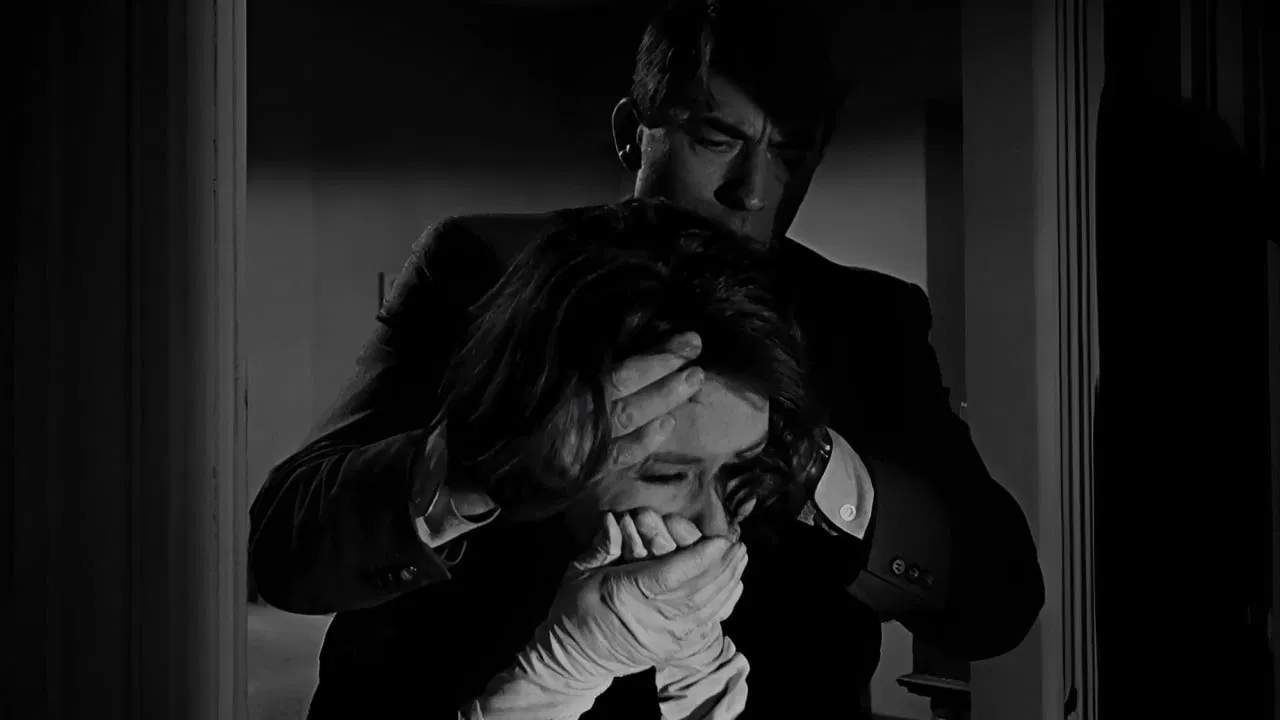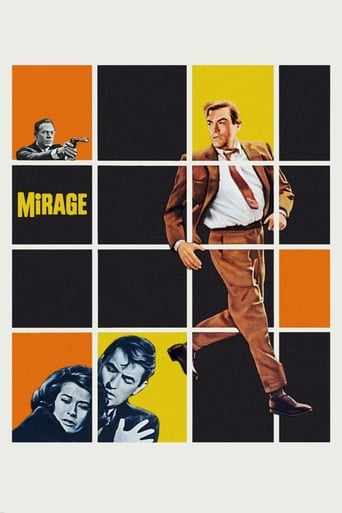

brilliant actors, brilliant editing
... View MoreHow wonderful it is to see this fine actress carry a film and carry it so beautifully.
... View MoreLet me be very fair here, this is not the best movie in my opinion. But, this movie is fun, it has purpose and is very enjoyable to watch.
... View MoreIf you like to be scared, if you like to laugh, and if you like to learn a thing or two at the movies, this absolutely cannot be missed.
... View MoreWell, both ends in K, but Hitchcock has more letters...you know what I mean? I have read the other opinions here, all talking about the superlative movie. Of those 50 reviews, only 8 are correct about "Mirage": 1)Robert J. Maxwell (rmax304823@yahoo.com) from Deming, New Mexico, USA, 2)tireless_crank from Maryland, 3)planktonrules from Bradenton, Florida, 4)worldofgabby from United States, 5)airfoyle from United States, 6)Muskox53 from Buffalo, NY, 7)kenjha, 8)J. Spurlin from United States. Only they approach the truth, even put the point on it. I've seen a lot of movies directed by Edward Dmytryk, usually honorable decent movies. The best, in my humble opinion, is "The Mountain", with Spencer Tracy, which I have seen many times with great pleasure. With this "Mirage" he tried to mimic Hitchcock, which can not be imitated. Many others have tried, no one can match the great master (Brian De Palma has come closest). "Mirage" has all the Hitchcock brand items, the same recipe, but not Hitchcock is the cook, you know what I mean? The actors all strive, but I'm sorry to say it, the movie is a failure. In vain we have the super-great Walter Matthau, the super-natural George Kennedy. Kevin McCarthy and Jack Weston are just OK, the same as in all their other films. Diane Baker is young and beautiful. She is also a very good actress, but unconvincing here because the script is chaotic and contradictory. Gregory Peck I never liked too much, in all the movies he's a constipated guy, like he's always got a big carrot in his ass. And then, the same verbal tics, pauses, eyes, moves, body language, the same, always the same. Sorry Peck lovers, I prefer Lee Marvin for instance. And the music by the great Quincy Jones, is not great. Instead of trying to copy Hitchcock, Mr. Dmytryk better have done "The Mountain Part 2". 4 stars, because of Walter Matthau and George Kennedy.
... View MoreSeeing a wonderful movie with a bad resolution to the plot is like getting married only to find your spouse announces they want a sex-free marriage--it's THAT big a disappointment. This is my reaction to "Mirage". The film got me excited by its creative plot--but the ultimate resolution of the plot really left A LOT to be desired...no, wait,....it SUCKED!! The first 3/4 of the movie is a lot like the wonder 1990s TV series "Nowhere Man". If you saw this TV show (and only six people did), it was wonderful as a seemingly ordinary man suddenly finds his identity is gone...and no one recognizes him. Well, in this movie, Gregory Peck is in just this situation--he suddenly finds that his reality and his memories are not real! But, unlike the show, Peck IS recognized--but he does not recognize the people...and many are trying to kill or threaten to kill him!! This is great and you wonder just what sort of bizarre conspiracy is afoot. Sadly, however, when you DO get to learn the dark secret, it all seems VERY disappointing and preachy. It's sad, as up until then the film was great--really, really great. But the conclusion just didn't pay off or make any sense at all. I think what really happened was that they had a great idea but had no idea how to make it all come together. Would I recommend this film? Probably not...though it is, for a while, a heck of a ride.
... View MoreIn spite of a disappointing ending,the last good movie by Dmytryk,before the fall into mediocrities such as "Shalako" and "Bluebeard".He creates an atmosphere to rival the best of "crossfire" or ' the sniper" .The opening during a power failure ,is brilliant :as the hero suffers from amnesia,it's an extraordinary metaphor .Gregory Peck portrays a man who does not recognize the world around him ;supporting cast is first-class:Diane Baker ,an underrated actress makes the best of an underwritten part;Walter Matthau almost steals the show with his portrayal of a private .Good scenes in the zoo or in the shrink's office.
... View MoreA man suffering from amnesia must elude killers while trying to remember why he is being targeted. This thriller is a little frustrating to watch because, like the protagonist, the viewer has no clue what is going on for much of the movie. While somewhat intriguing initially, it soon becomes tiresome. When the truth is finally revealed, it is not only stupid and underwhelming but also undermines some of the plot points from earlier in the film. Peck is OK if somewhat dull as the amnesia victim. Baker is alluring as the love interest. Mathau is terrific as a private detective but his role is too brief. The cinematography is drab and the direction is uninspired.
... View More